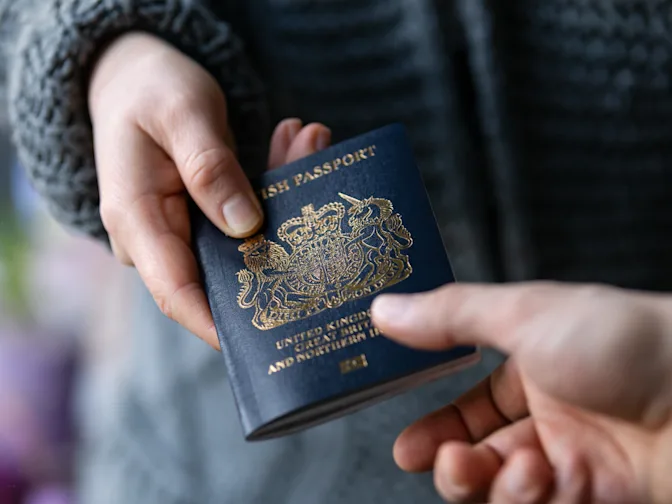
Everything You Should Know About Travel Agency Scams
More Americans are booking travel online, whether directly with airlines and hotels or through third-party websites. But is it safe? Not always. Online travel scams are on the rise. Some websites may look legitimate, but they're actually designed to steal your money, passwords, or personal information — sometimes even your identity. A recent survey conducted by McAfee Corp. found that 35% of American travelers have fallen victim to these scams while booking their trips. While travel scams can happen year-round, they're especially dangerous during the holidays when more people are searching for deals to visit family or take vacations. Scammers know this and take advantage of the busy season to trick unsuspecting travelers. To help you stay safe, we'll break down how online travel scams work, the latest tricks you should watch out for, and how to book your next trip safely without falling for a scam.
'Great Deals' and 'Free' Vacations
You've probably seen ads online promising a "free" vacation. Or a robocall offering vacation deals at a discounted price. Sounds great, right? But here's the catch: when you respond, you'll soon find out you need to pay for taxes or hidden fees first. So, that "free" vacation isn't really free after all. A real, trustworthy company will never ask you to pay for a prize that's supposed to be free. And those robocalls? By law, companies can't make robocalls to sell things unless they have your written permission. If a company is calling you without permission, it's likely a scam. At the very least, it's a company you'll want to avoid.

Spoofed Travel Sites
Scammers know that many people trust popular travel sites like Expedia, Booking.com, and Airbnb when booking trips. So, they create fake websites that look almost identical to these trusted platforms. Then, they send phishing emails or post ads on social media, tricking you into clicking on the links. If you book a flight, hotel, or vacation rental through one of these fake sites, you could end up losing your money and giving away personal information to cybercriminals.

International Document Scams
You might come across websites that promise to help you get travel documents like visas or passports for international trips. But beware — these sites are often fake copies of the real U.S. Department of State website. They charge you high fees for services that are actually free if you go directly to the official government site. Be careful if you need an international driving permit, which translates your U.S. driver's license into 10 different languages to make it easier to drive in foreign countries. Scammers sometimes create fake websites to sell these permits, or they might try to sell them to you in person. Using a fake IDP could cause major legal problems or delays in your travels. Only trusted organizations like the U.S. Department of State, the American Automobile Association (AAA), and the American Automobile Touring Alliance (AATA) are authorized to issue IDPs.

Fake Customer Service
Scammers often trick people by listing fake phone numbers as airline customer service hotlines. When travelers need to change or rebook their flights, they search for the airline's customer service number online. Unfortunately, the scammer's number may show up as one of the first results. Thinking it's the real airline number, people call and end up speaking to scammers who are ready to steal their money or personal information. Always double-check the airline's official website for the correct contact details to avoid falling for this trap.

Vacation Home Schemes
Today, it's easy to find vacation rentals by connecting directly with property owners who advertise their homes online. But watch out — scammers are also targeting renters. Some scammers hijack real rental listings, pretending the property is theirs. When you arrive for your vacation, you find out someone else is already staying there, and your money is gone. Other scammers don't even bother with real listings. They create fake ads for places that don't exist or aren't for rent at all. You think you've booked a great spot, but when you show up, there's nothing waiting for you. To avoid falling for these tricks, always double-check listings, read reviews, and book through trusted platforms.

Fake Charter Flights
You might receive a flyer in the mail, see an ad, or hear from someone in your community about an amazing offer to travel by private plane to a destination you've always wanted to visit. The deal may even include lodging and sightseeing tours, making it sound like the perfect vacation. But after you pay, you find out it's all a scam. To protect yourself, remember this: the U.S. Department of Transportation keeps a list of approved charter flights. If the charter isn't on that list, or if it hasn't been approved by the DOT before the package is sold, it's likely a scam. Always check the DOT's approved list before booking a private flight or vacation package to avoid falling for a dishonest offer.

How to Stay Safe
If you choose to book through a third-party site or travel agency, there are steps you can take to protect yourself and your family. First, do your research. Research the name of the agency or website and "scam" or "fraud" to see if there are any red flags. You can also check reviews on the Better Business Bureau website to learn more about the company's reputation. Also, use standard payment methods. Stick to credit cards instead of debit cards, payment apps, wire transfers, or gift cards, which provide less protection. If you can, use a Virtual Private Network (VPN). When shopping for flights or making bookings, a VPN hides your location and IP address, making it harder for scammers to target you with personalized airline scams. If someone calls asking for sensitive details like your passport number, Social Security number, or credit card info, hang up immediately. It's almost certainly a scam. Call the company or agency directly to verify. Finally, before you sign anything or make a payment, make sure you fully understand the terms of the deal. Always ask for a copy of the cancellation and refund policies before you pay. If the person can't provide those details, it's a red flag. Trust your gut — it's always better to be safe than sorry.

When it comes to booking your next trip, it's important to stay smart and be cautious. Scammers are always looking for ways to trick travelers into losing money or personal information. By doing your research, sticking to trusted websites, and carefully reading the fine print, you can avoid most travel scams. Remember to take your time, use safe payment methods, and never share personal details over the phone. With these tips in mind, you can enjoy a worry-free vacation and make sure your trip is as smooth as possible.
References: How to Avoid Travel Agency Scams | Avoid Scams When You Travel























